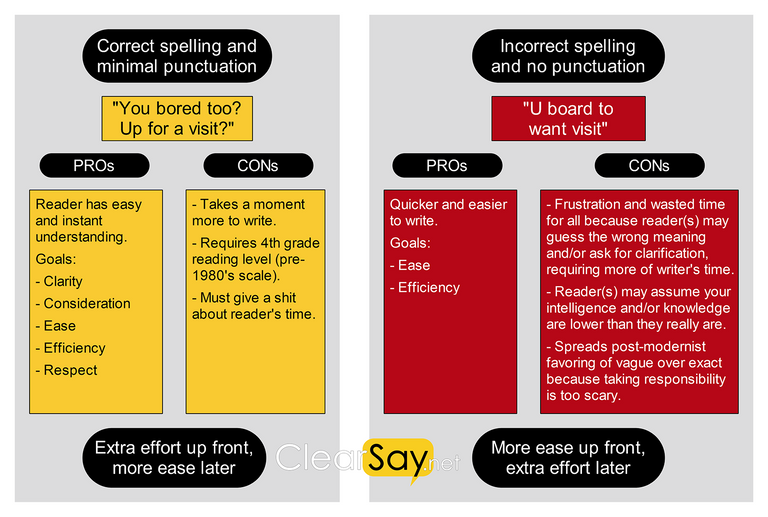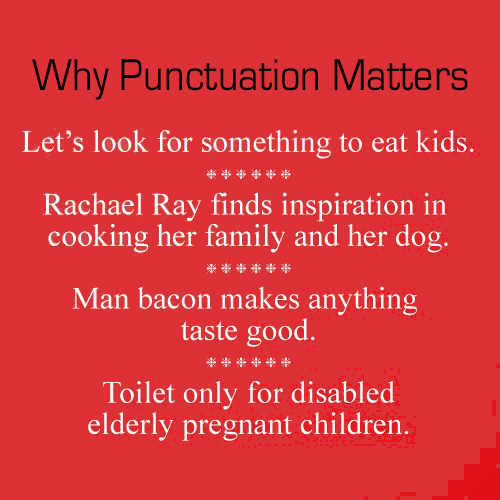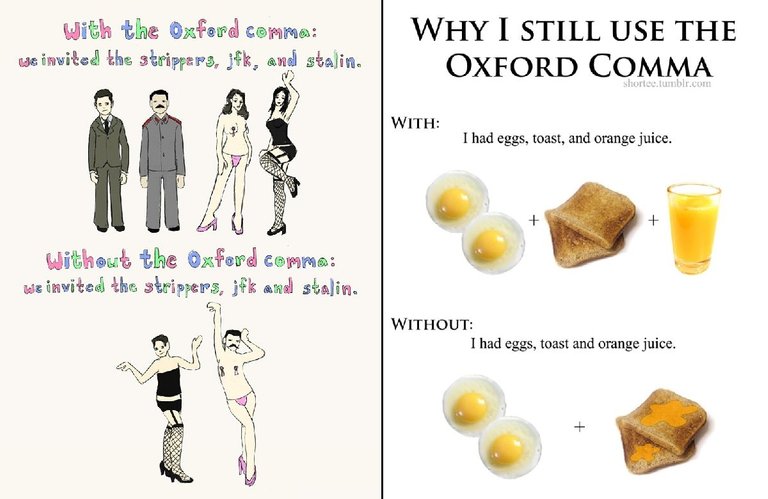Communication Efficiency, Grammar, and Freedom

How much time do we actually save by taking short cuts with our communication?
I’m a fan of efficiency. This is why I simultaneously sympathize with and get frustrated by people using certain kinds of short hand in their typed communication that is an attempt at efficiency that at times ends up costing them and the reader more time than if the writer had taken a bit more time to add commas, periods, and question marks.
A scary trend: people are reading less or consider “reading” to be social media posts and audio books. We’re losing the brain exercise that comes from using imagination and pattern recognition to translate symbols into ideas. ALSO, exercise of focus and patience!
“But I have dyslexia” or “It’s boring” or “I can’t focus that long on one thing” or “…” Similar excuses could be applied to physical exercise. It’s a vicious circle. I know soooo many people who make excuses like this. Reading is hard for them for one reason or another, so they don’t do it, so it becomes even harder. Like any other skill or discipline, it takes some effort and repetition.
I see the results of this play out every day in many contexts. From friends, clients, and workers to various online debates and “professional” writers of articles having terrible grammar and/or lacking basic knowledge. It’s annoying when I have to ask someone to please clarify because they chose to use a special kind of shorthand that has mis-spelled words, no punctuation, and could have four different meanings. It wastes my time and theirs.

Some examples
“I care about our relationship. I want to talk in person. Can I come over? When is good for you?”
(Sender: 6 sec to type. Receiver: 2 sec to understand. Frustration level 0.)
vs
“I care about our relationship i want to talk in person can i come over when is good for you”
(Sender: 5 sec to type. Receiver: 5 sec to understand. Frustration level 2.)
vs
“I care about our relationship want to talk in person can come over when is good for you”
(Sender: 3 sec to type. Receiver: 7 sec to try to understand but realizes they can’t be sure of the exact meaning; like is Sender asking for meeting at who’s domicile? So spends 5 sec typing reply query. Original sender: 3 sec to read query for clarification, 4 sec to take deep breaths and decide to be either butt-hurt that their mind wasn’t read or to answer, chooses to answer, 4 sec to send clarification. Receiver: 3 sec to understand. Frustration level 10.)
Which side of the fence are you on?
Do you ever get frustrated by either receiving a message that is hard to understand or are you more often on the other side of the fence wishing people would lighten up about your way of conveying messages?
Politics
I wonder if you see any connection between the “lazy grammar issue” (in writing and speech) with “journalists,” et al, as having any connection to socialism/statism vs liberty? Thinking along the lines of how language was used as a tool in the famous book 1984 with the ever shrinking dictionary and how of course, Hollywood, et al, are using words to reprogram minds.

Verbal communication can unify or divide
What if the more variations (dialects) of English spoken in a given subculture, the less efficient communication is? Maybe that is part of why I feel annoyance when people (increasingly) leave the “T” and “D” sound out of the middle or end of words. Try saying the following words without the “T” or “D” sound or replace with an imaginary apostrophe: Say “Liberty” or “Little” or “Didn’t” or “Started” or “Tighten” or “Certain” . Reminds me of a “low class” British or Scottish accent and ebonics.
Devil’s advocate
What if this morphing of language is merely more natural evolution toward more communication efficiency in aggregate and does not necessarily have political implications?
Finally. Have you heard?
Punctuation and correct spelling are racist.